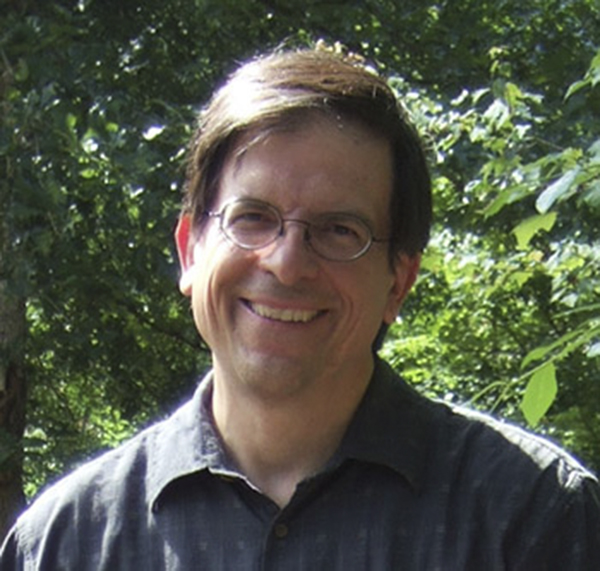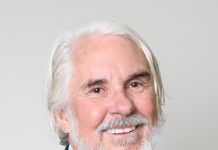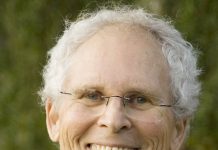
By Dave Raber
Would you trust a developer to give you information to help you stop overdevelopment? Consider that Measure Q’s opponents, “Citizen’s for Laguna’s Future” is funded almost exclusively by developer and business interests whose priorities are likely very different from yours. The opposition against Measure Q is very well funded because they can easily afford it, and it threatens their unfettered ability to build whatever they can get approved by a now developer-friendly City Council. In contrast, Laguna Residents First is funded exclusively by residents who care about our city and its future.
Measure Q requires the City to carefully evaluate commercial intensification proposals when they would impact neighborhoods existing businesses. Too much incremental intensification and development puts both the neighborhoods and existing businesses at risk and certainly deteriorates Laguna’s unique value.
An example that opponent Cody Engle cites in a recent letter is the proposed coffee bar at the very busy intersection where Forest meets Broadway. This seems to be an unlikely place for a successful coffee shop, especially given the noise and traffic at that location, but set that aside for a moment.
Measure Q allows for new parking exemptions where a finding is made that it would be in the public interest and does not negatively impact the neighborhoods. In this specific case, the largest downtown public parking lot is directly across the street from the proposed coffee shop, and there are no adjoining neighborhoods to impact. It’s hard to imagine why a city staff person felt that the finding couldn’t have been made.
The finding can easily be made if the City honestly examines the details here – no adjoining neighborhood and plenty of public parking within easy walking distance. We support the decision that the City made to allow the new coffee shop. We are disappointed in the opponents’ untrue speculation that Measure Q would have prevented its approval.
Further in Mr. Engle’s recent letter, he compares Measure Q to a business that would have to vote “every time the business wanted to add a new product, service, or make a price change.” That is a bold exaggeration that defies civil discussion on the issue. Measure Q does not even remotely interfere with the important principles of businesses being run as the owner sees fit or that it requires a vote on everything. Measure Q leaves most development decisions to the City’s existing planning process. In most of the examples cited, minor adjustments could be made to the proposal to make it less impactful to the community and in compliance with the reasonable standards contained in Measure Q.
The proponents of Measure Q stand by the balanced constraints that are contained in the Ballot Initiative. Laguna will certainly change and evolve with the times. Measure Q provides flexibility and a reasonable set of guidelines so that developers will only bring well-thought-through plans that are compatible with the unique environment and value that Laguna offers to residents, merchants, and visitors alike.
Raber is the co-founder of Laguna Residents First.





One of those dreaded developers is Mark Orgill, who is running for City Council with the endorsement of Village Laguna but doesn’t support Measure Q. These lazy attempts to stereotype people who oppose Measure Q is one more reason to vote against it.
The fact is as Mr Raber has highlighted in his column. “Citizen’s for Laguna’s Future” is funded almost exclusively by developer and business interests whose priorities are likely very different from yours. They are only too happy to privatize any profits to be had from intensifying Laguna and allowing all of the costs (monetary and quality-of-life) to be socialized among residents. Please vote YES on Measure Q to ensure that the deep-pocketed special interests can’t destroy the Laguna you love in pursuit of profits.
It’s all in publicly available documents at the City Clerk: multiple PACs, the National Association of Realtors, real estate developers, builders, consultants and others with an agenda outspending the resident-backed Measure Q 10 to 1. With so much money to be made on coastal development, it’s no wonder Measure Q opponents hope residents will give up their right to vote on the future of Laguna. All one has to do is look at whose opposed to figure this one out. Yes on Q.
No on Q
Mr. Raber’s article provides an excellent illustration of the gap between Measure Q’s “good intentions” and how it would actually work. Measure Q is a legal document. It would be a city ordinance that would require enforcement. Probably by design (“we can’t trust the city council”), Q allows very little latitude in its application.
In my article, I noted that the proposed coffee house did not meet Q’s mandated parking requirements, and under Q, a vote would be required. Mr Raber suggests that since there is a city lot across the street, a “city staffer” (actually the Planning Commission-“PC”) could waive the parking requirement. However, Q does not allow such judgments. Q provides that if the PC finds there is no impact on parking, only then can the parking requirements can be waived. The coffee house would change a small office building into a 16 seat establishment. If the PC made a finding of “no” impact on parking., there would be a lawsuit (probably by a Q supporter), challenging the finding. The finding of no impact clearly could not legally stand.
This is the challenge of Q. Every time a problem is raised about how Q would actually work, and there have been many, Mr. Raber, and his supporters, say “minor adjustments” is all it will take to make a project exempt from the vote. They are suggesting ways to get around there own proposal. Why ask voters to put into law, provisions that need to be worked around to enable small businesses to open.
Only one of the 6 “triggers” for a required vote relates to building size. The real negative impact of Q is related to parking and “average daily trips” (coming and going equals two trips). Q requires that the city rely on the “Trip Generation Manual of the Institute of Transportation Engineers” in its calculation of traffic generating trips. If the calculation finds that a store generates more trips than Q allows (under individual and cumulative rules), a public vote is required. There is no opportunity for interpretation or judgement. Q sets a series of absolute rules. In cases relating to traffic, the vote requirement would be determined by an external manual over which there is no local control.
Here’s an even worse part of Q. Even the smallest element of Measure Q can only be amended by another public vote. The City Council, with its hands tied by Q, will be unable to make sensible responses to changing situations. With all the State of California activity currently impacting California cities, the ability to respond to the many state mandates becomes a critical need in order to minimize the negative impact of state mandates.
Measure Q is a poorly drafted document with arguably good intentions. Its impact on the city would be quite negative. Please vote “No” on Q
Mr. Engle must have missed some features of Measure Q: 1-Section 5 states that the Measure Q provisions can NOT be applied in violation of any State and Federal laws. [Note: This leaves the City Council the same free rein they currently have in responding to new State and Federal mandates]. 2-There are provisions in Measure Q for the Community Development and staff to adjust lot lines as well as waive parking requirements when nearby parking is available. [Note: The parking requirements are the same that they have ALWAYS been until very recent changes. Why change what has worked for years unless it is to accommodate large commercial developments as has been aggressively pushed since our neighboring coastal cities gave their residents’ rights to vote on them–pushing these opportunists into trying to BUILD BIG here?] 3-Measure Q provides for the grandfathered business parking waivers. 4-“Trip Generation Manual of the Institute of Transportation Engineers” is EVIDENCE-BASED DATA by engineers expert and trained in this area, which is why most cities use their measures. [If you don’t like going to the experts for help, then you won’t need to bother with a heart surgeon when you need a bypass. A general internist will do fine by your criteria]. 5-Small businesses are protected by Measure Q since they’re not over 7500 gross square feet of floor space (parking spaces, garages, and sidewalk stuff isn’t part of the count) or 6000 gross square feet of floor space in the DSP (downtown plan area). [Note: Measure Q protects our current restaurants and retail stores by discouraging huge new commercial developments squeezing them out].
Deborah Laughton Weiss will never concede this, but so much of the confusion and debate about what Measure Q means is the result of how Measure Q is written.
I do agree with Chris Quilter on how not only Measure Q but a number of City ordinances and zoning codes use that clunky, opaque legal language. I looked at our zoning codes and it appears that Measure Q’s parking zone language (page 6) and city business zones lot sizes (page 10-14) were lifted from Laguna’s zoning codes (in practice until recent changes). Would I like legalese to be replaced by standard English? You bet–as long as it would stand up in a court of law. I’ve been reading this legalese for decades in my work and in review of all the Ballot measures I’ve voted for in CA. I agree that none of them are easy to read.
When I moved to Laguna, I constantly questioned why it was such a backward thinking town with so much potential. Then, I read “Orange Sunshine” the story of The Brotherhood of Eternal Love, and I figured it out. All of the local kids who were hippie doping surfers stayed stoned in Laguna and then their little clique grew up and those are the fools that have been bamboozled into thinking stinking Old timey Laguna is cool. It’s not. NO on Measure Q. The people can vote for City Council, and our elected leaders bear the responsibility of managing our town.
Steve,
That’s so cruel to the Brotherhood. Just to be clear, the Yes on Q folks are not descendants of Laguna’s hippy era, though a little plant medicine might chill them out. The hippies were run out of town when the money arrived. But I agree, no on Q. Yes to representative government.